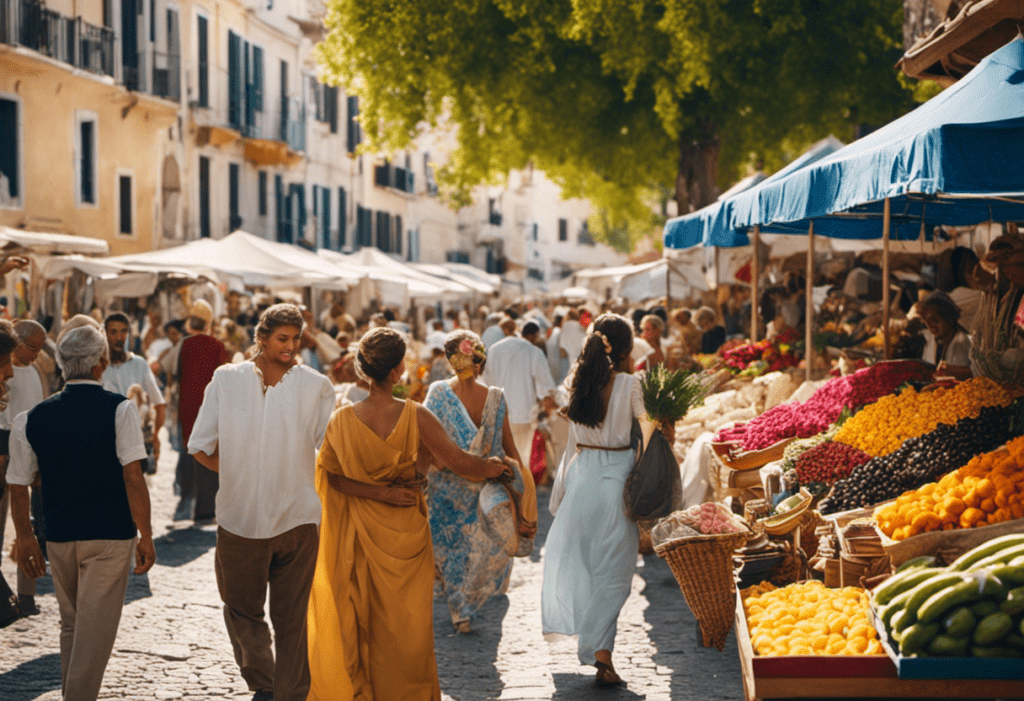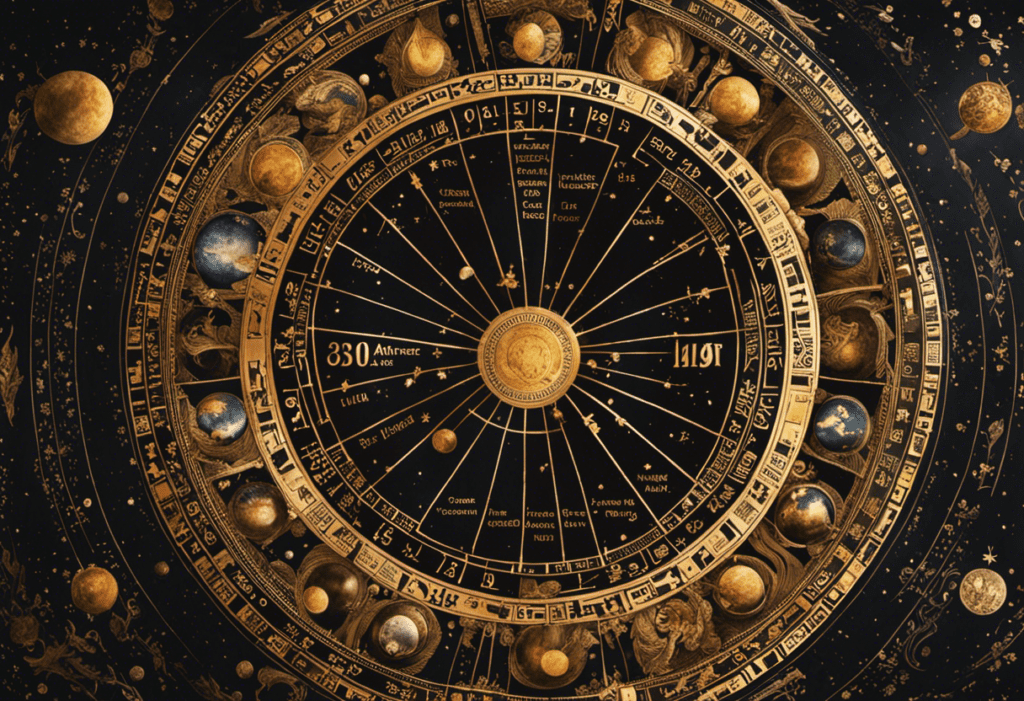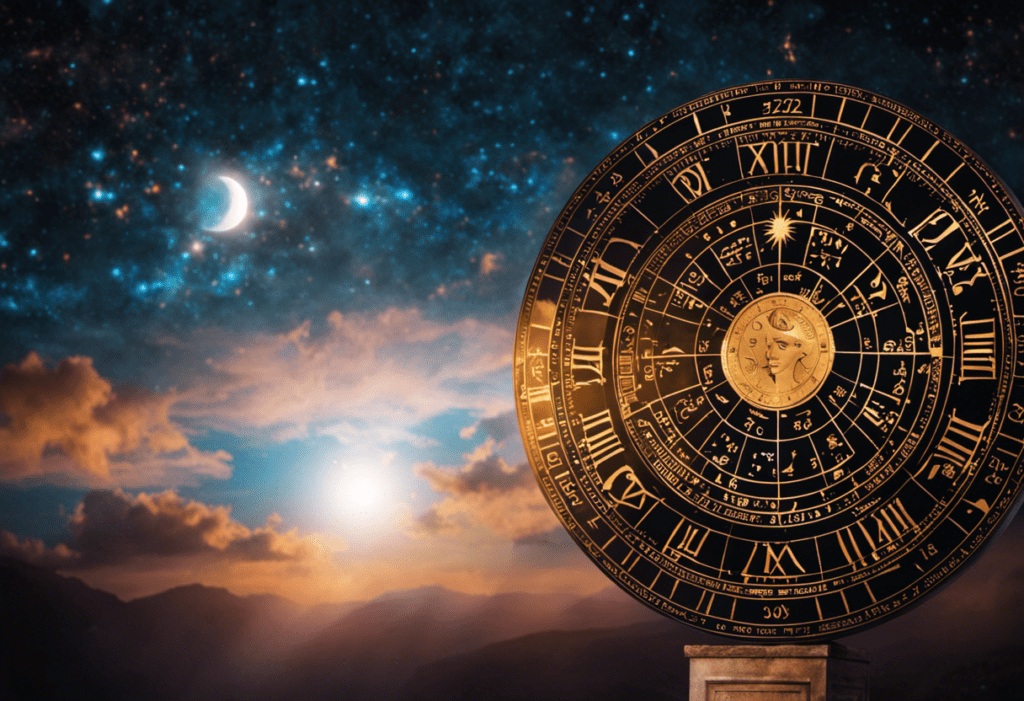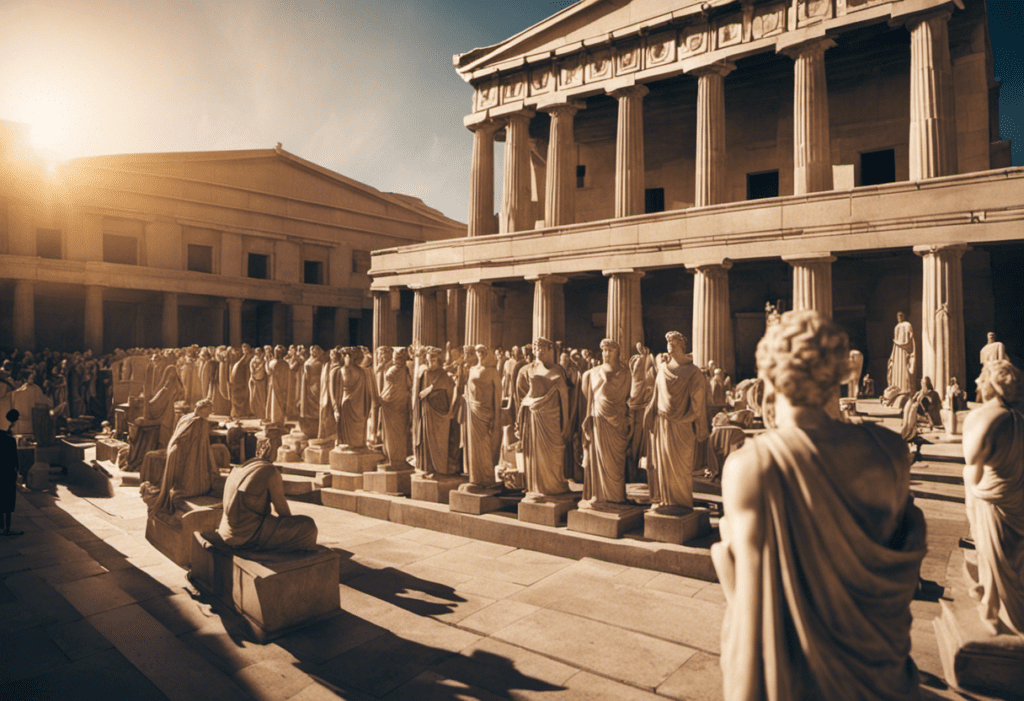In the annals of time, the ancient Greek calendar stands as a masterful architect, intricately shaping the tapestry of festivals and social life. Like the steady ticking of a celestial clock, this calendar dictated the rhythm of religious observances, athletic competitions, and cultural gatherings.
Its influence reached far beyond mere dates, permeating the fabric of daily existence and leaving an indelible mark on the legacy of modern festivities. Join us as we unravel the profound impact of the ancient Greek calendar on the vibrancy of festival participation and social interactions.
Key Takeaways
- The Ancient Greek calendar was structured around agricultural activities and lunar phases, influencing the timing of planting, harvesting, and religious festivals.
- Religious festivals played a pivotal role in the calendar, with deep connections to religious rituals and historical significance. The Olympic Games and Dionysia were among the most important festivals.
- Athletic competitions, such as the Olympic Games, were integral to the calendar and provided a platform for athletes to showcase their physical prowess and honor the gods.
- Festivals played a crucial role in shaping cultural identity, allowing individuals to express shared customs and traditions, assimilate various cultural elements, and foster a sense of community and shared identity.
The Structure of the Ancient Greek Calendar
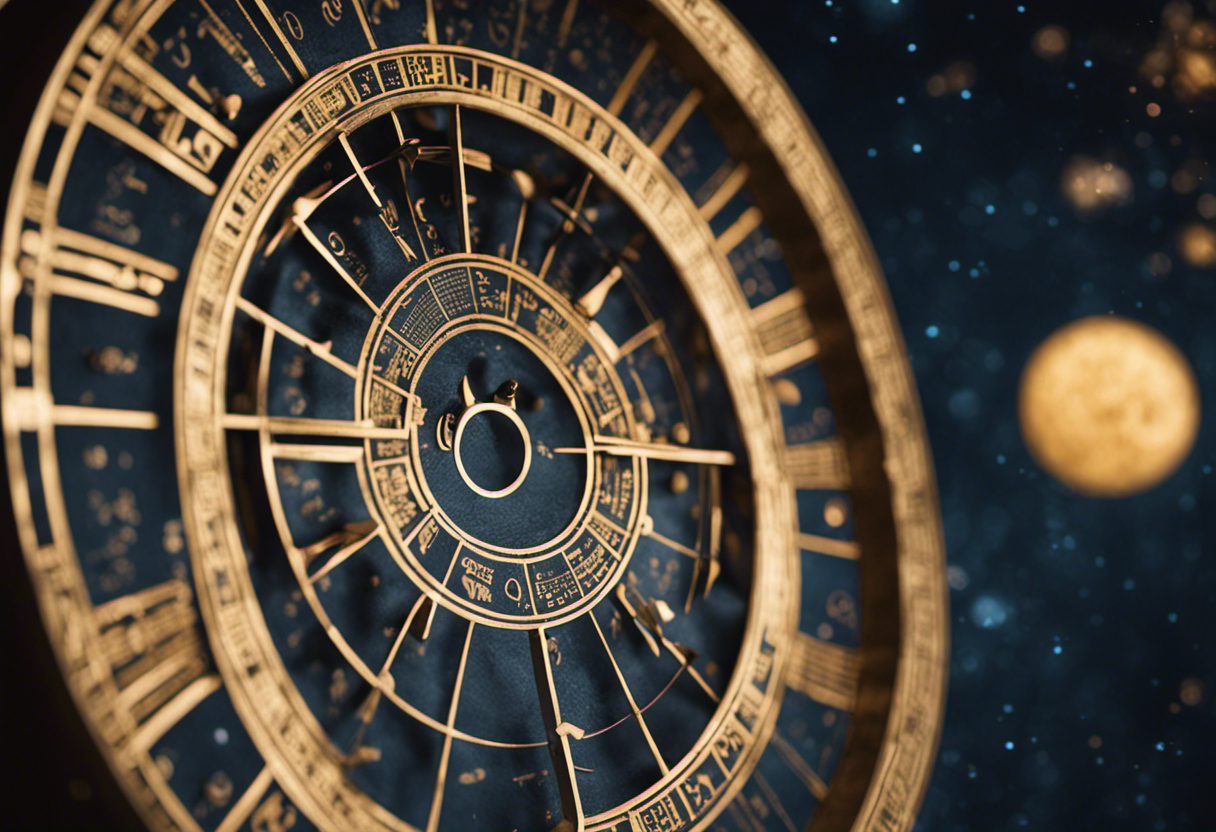

The ancient Greek calendar was divided into twelve months, each consisting of either 29 or 30 days. This structure was influenced by the agricultural activities and the lunar phases. The Greeks relied heavily on agriculture for their livelihood, and their calendar reflected this dependence. The lunar phases were used to determine the timing of planting and harvesting, as well as the occurrence of religious festivals and social events.
The agricultural activities played a crucial role in the ancient Greek calendar. The months were named after agricultural activities or natural phenomena associated with each month. For example, the month of Thargelion was named after the blooming of the tharos plant, while Gamelion was named after the marriage ceremonies that took place during this time. This naming convention demonstrates the close connection between the calendar and the agricultural seasons.
The lunar phases also influenced the Greek calendar. The months were divided into two parts based on the lunar cycle – the waxing and waning phases of the moon. The new moon marked the beginning of the month, and the full moon marked the middle of the month. This lunar division helped the Greeks keep track of time and plan their activities accordingly.
Religious Festivals and the Greek Calendar
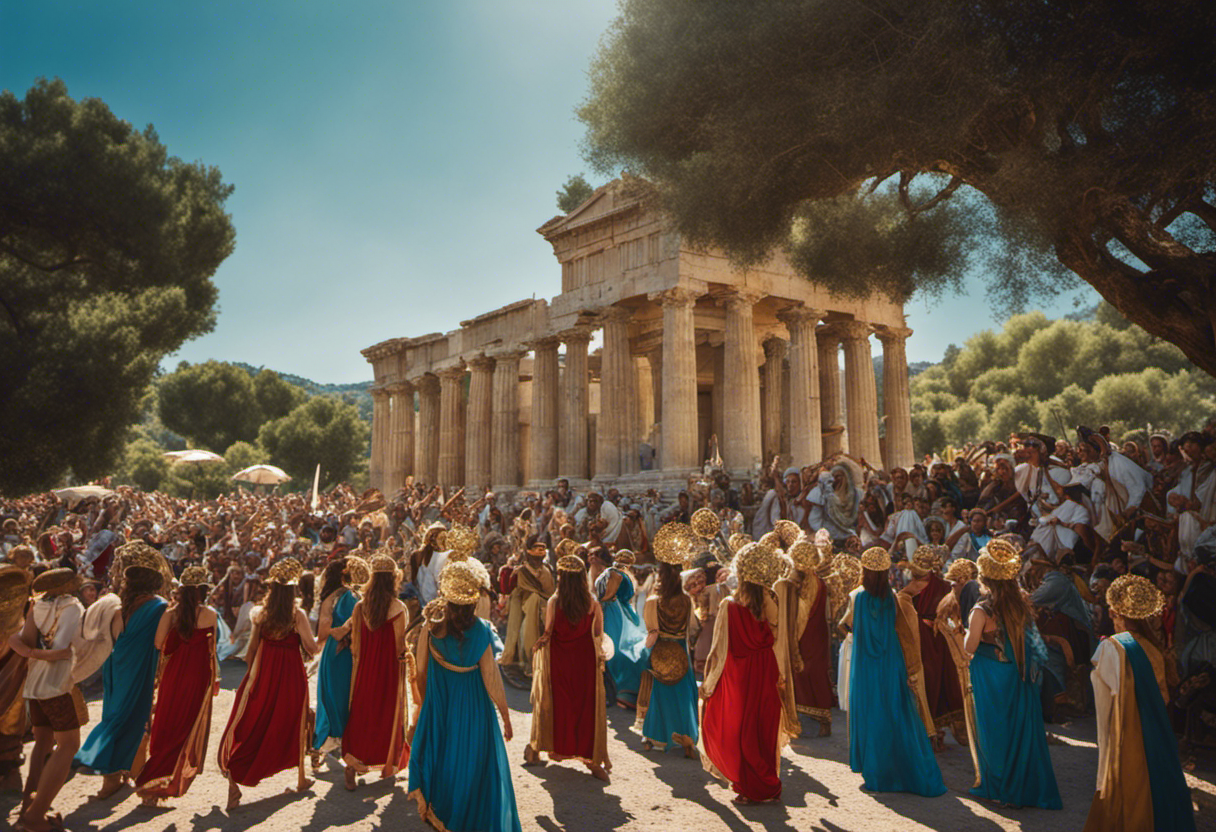

Significantly, religious festivals played a pivotal role in the ancient Greek calendar, shaping the social and cultural fabric of their society. These festivals were deeply intertwined with religious rituals and held great historical significance.
The Greeks celebrated a multitude of religious festivals throughout the year, honoring their gods, goddesses, and mythical heroes.
One of the most important religious festivals in ancient Greece was the Olympic Games, held every four years at Olympia. This grand event was dedicated to Zeus, the king of the gods, and included athletic competitions, sacrifices, and religious ceremonies. The Olympic Games not only showcased the physical prowess of the participants but also served as a platform for cultural exchange and national unity among the Greek city-states.
Another significant religious festival was the Dionysia, dedicated to Dionysus, the god of wine and theater. This festival consisted of dramatic performances, music, dance, and processions. The Dionysia provided an opportunity for the Greeks to reflect on the human condition and explore societal issues through the medium of theater.
These religious festivals were not only religious in nature but also had a profound impact on the social and cultural aspects of Greek society. They brought people together, fostering a sense of community and shared identity. Moreover, these festivals provided a space for artistic expression, allowing poets, musicians, and performers to showcase their talents.
Athletic Competitions and the Calendar
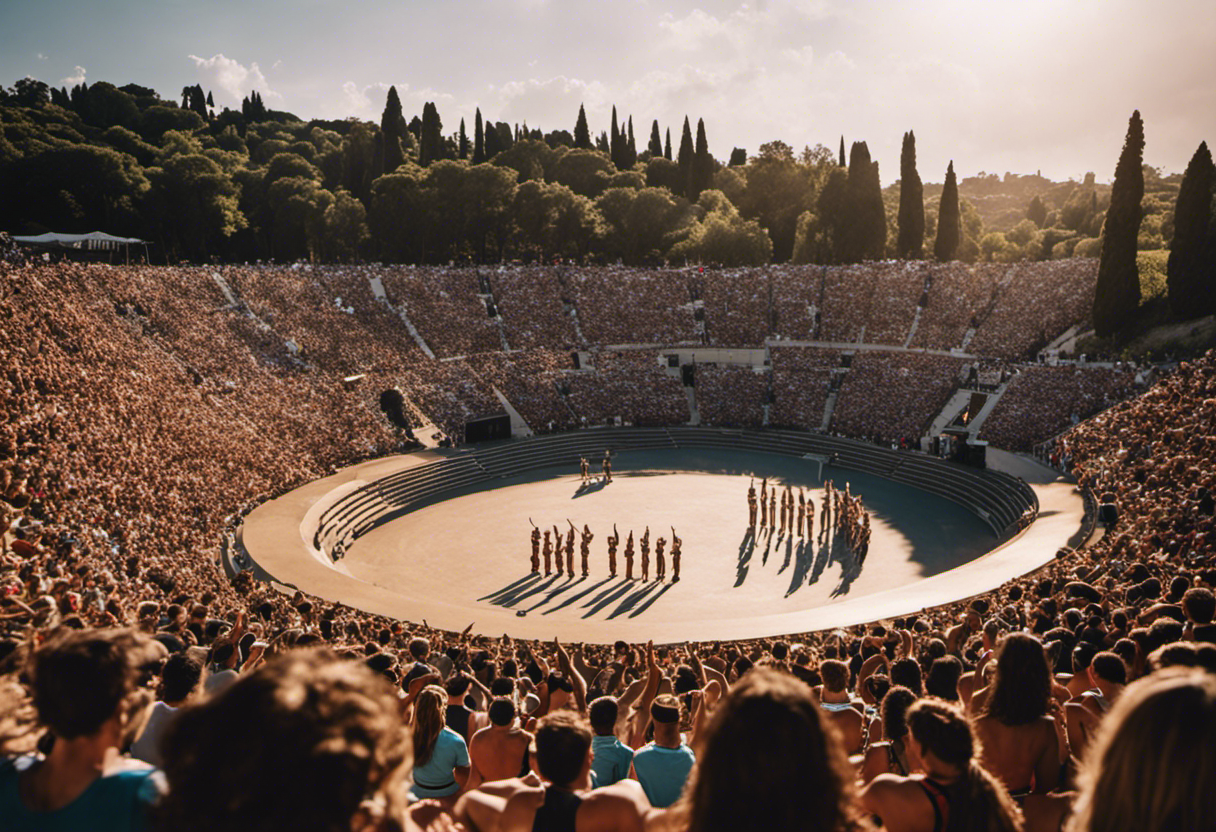

Moreover, athletic competitions played a crucial role in the ancient Greek calendar, shaping not only the physical abilities of individuals but also the social dynamics of their society. Ancient Greek sports were an integral part of religious festivals and other important events throughout the year. These competitions provided a platform for athletes to showcase their physical prowess and also served as a means of entertainment for the spectators.
One of the most famous athletic competitions in ancient Greece was the Olympic Games, which were held every four years in Olympia. The games featured various events such as running, wrestling, discus throwing, and chariot races. Athletes from different city-states would participate in these games, and the winners would be celebrated and revered as heroes in their respective communities.
The Greek calendar revolved around the religious festivals, and athletic competitions were an essential component of these festivals. The competitions were seen as a way to honor the gods and gain their favor. Participants would offer prayers and sacrifices to the gods before competing, believing that success in the games would bring them closer to the divine.
These athletic competitions also had significant social implications. They served as a platform for city-states to showcase their strength and power, as the winners were seen as a reflection of the superiority of their respective city-states. The competitions fostered a sense of unity and pride among the citizens, as they cheered for their representatives and celebrated their victories.
Cultural Identity and Festival Participation
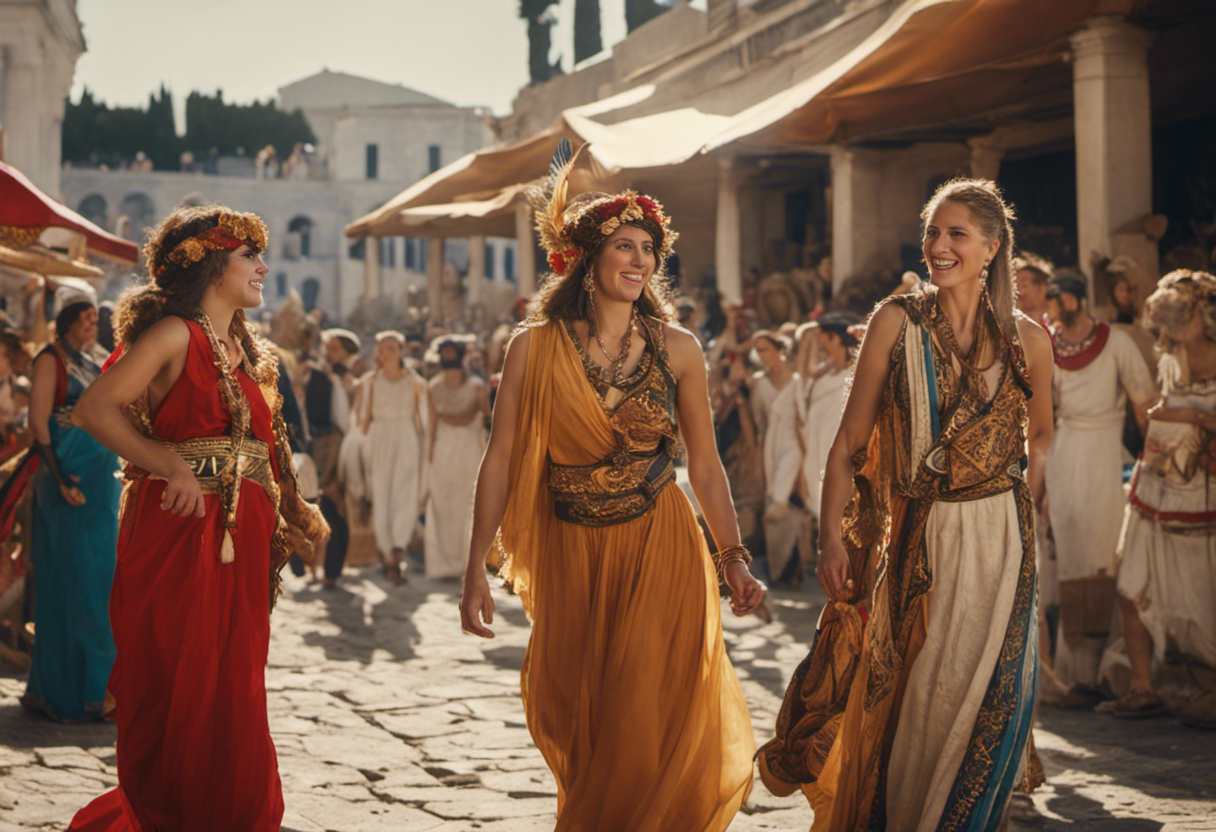

Additionally, cultural identity and festival participation were deeply intertwined in ancient Greece, as festivals provided an opportunity for individuals to express their shared customs and traditions. Festivals played a crucial role in shaping the cultural assimilation and historical preservation of ancient Greek society.
Cultural assimilation was a significant aspect of festival participation in ancient Greece. The festivals allowed people from different regions and city-states to come together and celebrate their shared Greek identity. These events provided a platform for individuals to showcase their cultural practices, including music, dance, and rituals. By participating in these festivals, individuals were able to exchange ideas and experiences, contributing to the assimilation of various cultural elements into the broader Greek identity.
Moreover, festivals played a vital role in preserving the historical traditions of ancient Greece. Many festivals were deeply rooted in mythology and historical events. These celebrations served as a medium to honor the gods and goddesses, as well as commemorate the achievements of legendary figures. By participating in these festivals, individuals kept alive the stories and traditions passed down through generations, ensuring the continuity of their historical heritage.
Social Interactions at Greek Festivals
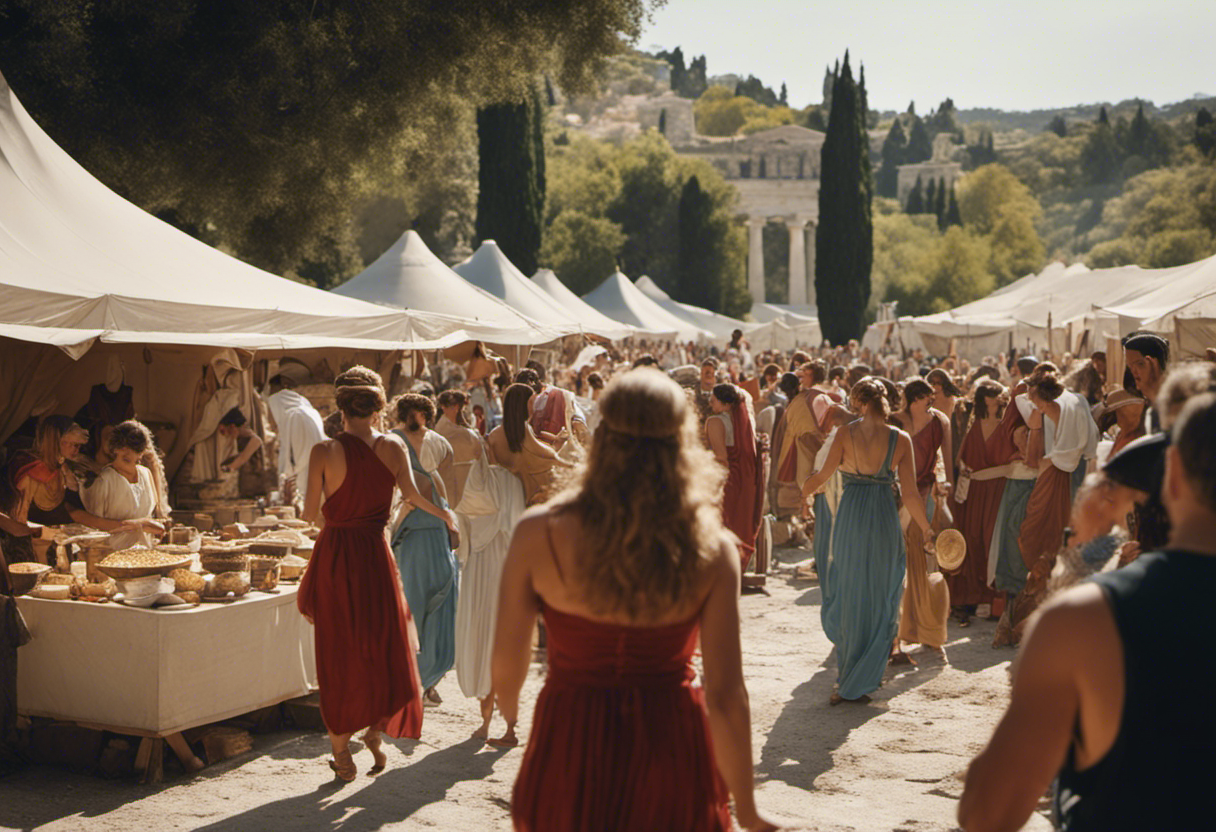

Social interactions at Greek festivals played a significant role in shaping the community’s social dynamics. Festival customs and traditions, such as processions, competitions, and sacrifices, provided opportunities for individuals to come together and engage in shared activities.
These events not only fostered a sense of community bonding but also provided a platform for socializing, networking, and strengthening social connections among the participants.
The social interactions at Greek festivals were therefore crucial in shaping the social fabric of ancient Greek society.
Festival Customs and Traditions
The festival customs and traditions at Greek festivals played a significant role in shaping social interactions within ancient Greek society. These customs and traditions were deeply ingrained in the culture and were an important part of community life. Here are some key aspects of festival customs and traditions:
- Festival decorations: Greek festivals were known for their elaborate decorations, which included the use of flowers, garlands, and colorful fabrics. These decorations added to the festive atmosphere and created a sense of celebration and joy.
- Musical performances: Music played a central role in Greek festivals. Musicians and performers would entertain the crowds with their melodic tunes and rhythmic dances. These performances brought people together, fostering a sense of unity and shared experience.
- Rituals and ceremonies: Festivals were often accompanied by various rituals and ceremonies, which held great religious and cultural significance. These rituals allowed individuals to connect with the divine and reaffirm their communal identity.
- Games and competitions: Festivals were also an occasion for friendly competition and athletic events. These games brought people together in a spirit of camaraderie and provided opportunities for social interaction and bonding.
Impact on Social Dynamics
Moreover, the interaction and engagement among individuals at Greek festivals played a crucial role in shaping the social dynamics of ancient Greek society. These festivals provided a space for people from different social and economic backgrounds to come together and participate in various activities.
Gender dynamics were also influenced by these festivals, as they provided women with opportunities to engage in public life and assert their presence in society. For example, during the festival of Thesmophoria, women gathered to celebrate and discuss women’s issues, challenging traditional gender roles.
Additionally, Greek festivals had significant economic implications. They attracted visitors from different regions, leading to increased trade and economic activity. Artisans and merchants set up stalls to sell their wares, contributing to the local economy.
Furthermore, the festivals provided opportunities for networking and forming social connections, which could have long-lasting economic benefits for individuals and communities.
Community Bonding Activities
During Greek festivals, individuals actively engaged in communal dances, fostering a sense of unity and togetherness. These festivals provided an opportunity for community members to come together and participate in various activities that strengthened social bonds.
Outdoor games were a popular form of entertainment during these festivals. Games such as running races, wrestling, and discus throwing not only allowed individuals to showcase their physical abilities but also facilitated interaction and friendly competition.
Additionally, music and dance played a significant role in fostering social interactions. Musicians and dancers would perform traditional songs and dances, inviting others to join in the festivities. This created a joyful and lively atmosphere, bringing people closer and reinforcing social cohesion.
The combination of outdoor games, music, and dance ensured that Greek festivals served as platforms for community bonding and shared experiences.
Influence of the Calendar on Daily Life
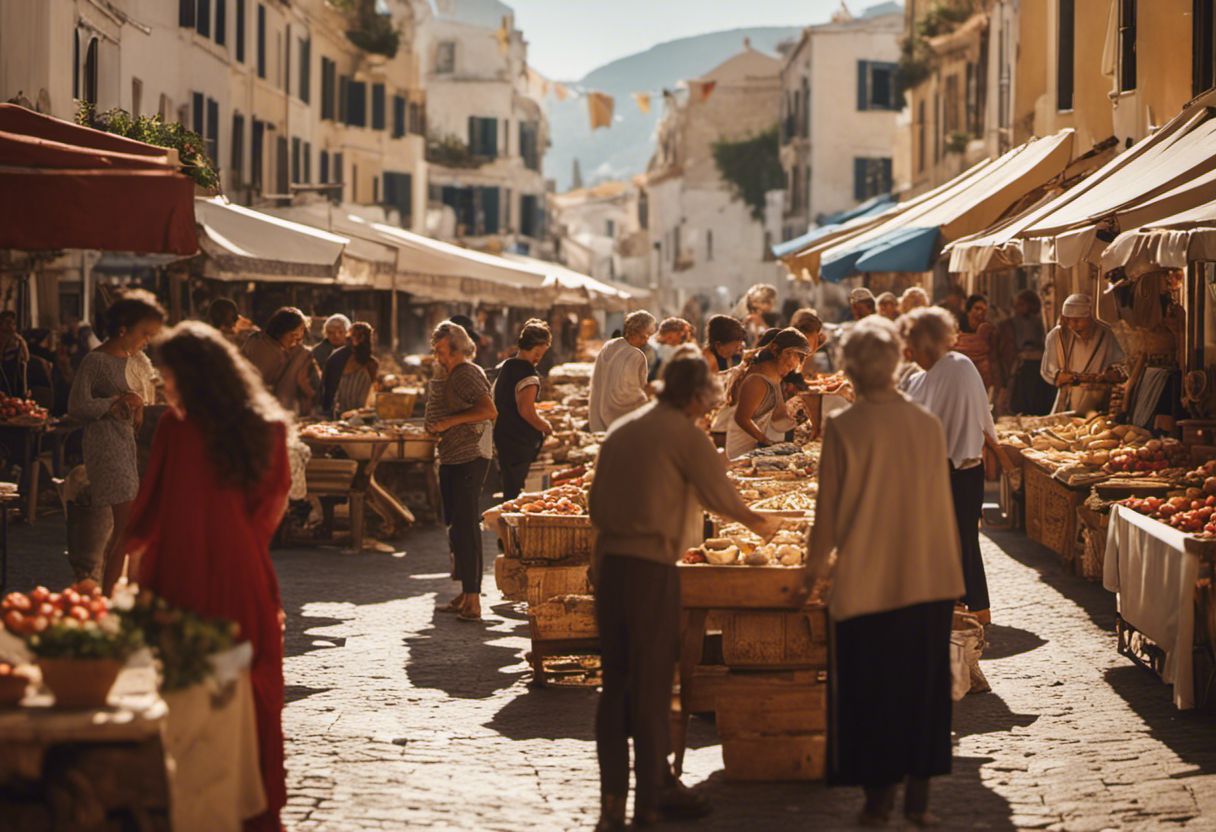

The influence of the Greek calendar on daily life can be seen in various aspects of ancient Greek society. One of the major influences of the calendar was on agriculture. The Greeks relied heavily on farming for their sustenance, and the calendar played a crucial role in determining the timing of agricultural activities. The calendar helped farmers to know when to plant crops, when to harvest them, and when to perform other important tasks like irrigation and fertilization. By aligning their agricultural activities with the seasonal changes marked by the calendar, the Greeks were able to optimize their farming practices and ensure a successful harvest.
The Greek calendar also had a significant impact on religious practices. The ancient Greeks were deeply religious and their religious festivals played a central role in their daily lives. These festivals were closely tied to the calendar, with each month having its own specific religious celebrations. The calendar dictated when these festivals would be held, and the Greeks would plan their daily activities around these religious events. The festivals provided a sense of community and brought people together, fostering social cohesion and strengthening the bonds between individuals.
Legacy of the Greek Calendar in Modern Festivals
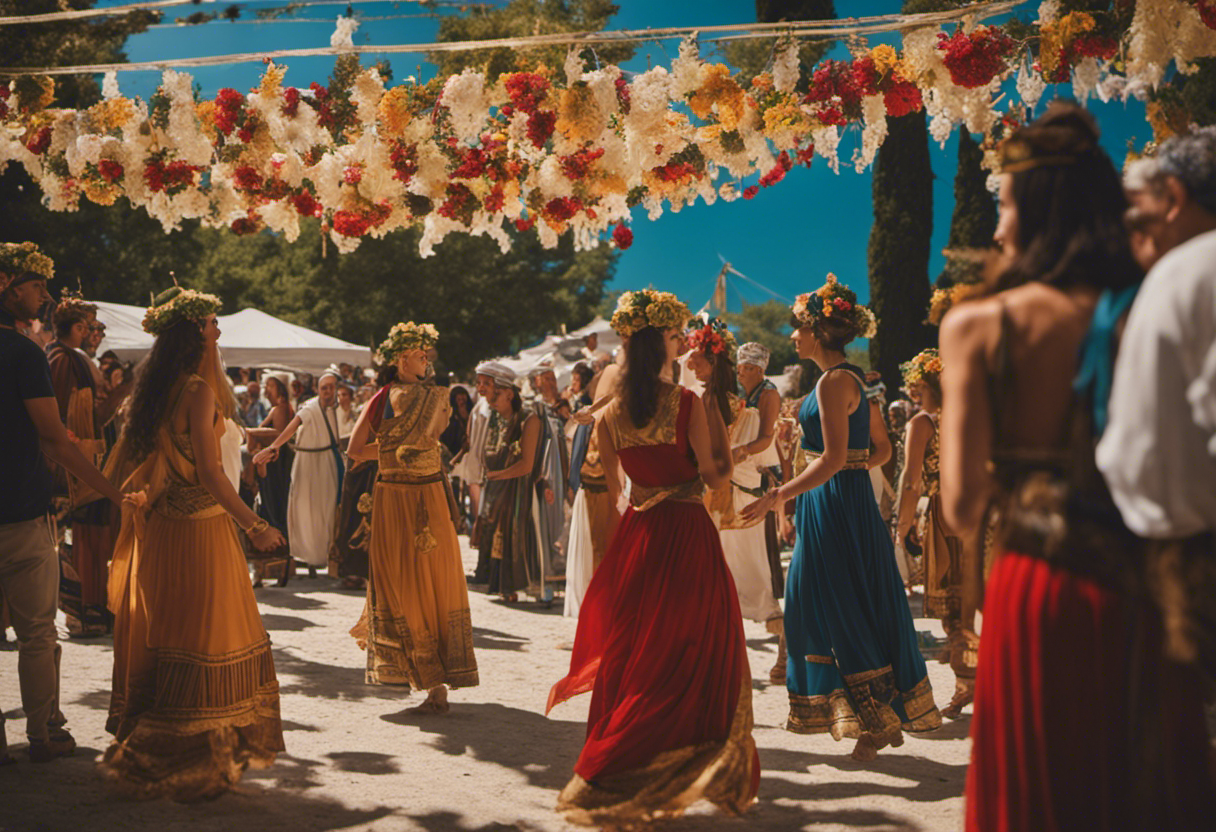

While the influence of the Greek calendar is most evident in ancient society, its legacy continues to shape modern festivals in various ways. The significance of the Greek calendar in contemporary events can be seen through the following:
- Naming of Months: Many modern calendars still retain the names of the months derived from the ancient Greek calendar. For example, the month of January is named after the Greek god Janus, the god of beginnings and transitions.
- Celebration of Ancient Greek Festivals: Some modern festivals are directly inspired by ancient Greek celebrations. For instance, the Olympic Games, held every four years, were originally a part of the religious festivals honoring Zeus in ancient Greece.
- Influence on Cultural Practices: The legacy of the Greek calendar can also be seen in cultural practices related to time and seasons. For example, the celebration of Easter is determined by the Greek Orthodox calendar, which is based on the ancient Greek calendar.
- Symbolism and Mythology: The Greek calendar’s influence is also evident in the symbolism and mythology associated with modern festivals. The use of Greek gods and goddesses as symbols or themes in festivals reflects the continued relevance and impact of the ancient Greek calendar.
Conclusion
In conclusion, the ancient Greek calendar served as a powerful tool in shaping festivals and social life. Its structure provided a framework for religious celebrations and athletic competitions, fostering cultural identity and promoting social interactions.
The influence of the calendar extended beyond festivities, permeating daily life and leaving a lasting legacy in modern festivals.
The rhythmic dance of time, guided by this ancient calendar, continues to connect us to the rich traditions and vibrant spirit of the Greek civilization.

